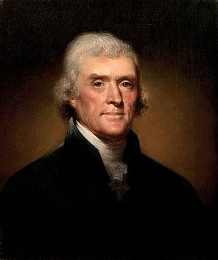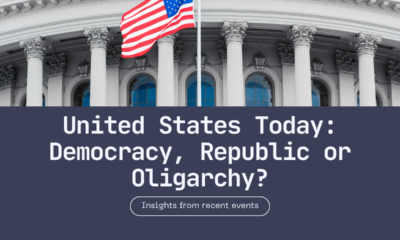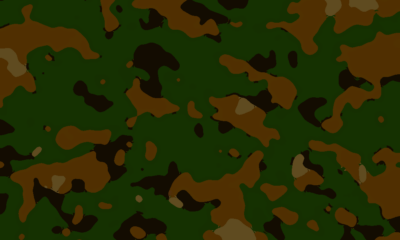Education
Government: a scary lesson

In Skokie, Illinois, students in the fourth grade are hearing a new take on government. The Blaze reported last Friday that, in the view of the East Prairie School, government is like a family. The analogy is false, as is easy to show. Furthermore, this goes to show why governments should not run the nation’s schools. A free people cannot trust a government to run a school. Not when it teaches lessons like this.
What does the East Prairie School say government is?
 The Blaze story carries a copy of the “What is Government?” worksheet from the East Prairie school. That sheet defines government this way:
The Blaze story carries a copy of the “What is Government?” worksheet from the East Prairie school. That sheet defines government this way:
Government is all of the agencies, departments, organizations, groups, individuals in a nation who make, carry out, enforce, and manage conflicts about rules and laws.
Fair enough. But it then makes this false analogy:
Government is like a nation’s family. Families take care of children and make sure they are safe, healthy and educated, and free to enjoy life. Families encourage children to be independent hardworking and responsible. Families make and enforce rules and give appropriate punishments when rules are broken. Government does these things for its citizens, too.
Really.
First, the East Prairie School Social Studies Department contradict themselves. How can government encourage anyone to be independent while giving its citizens free stuff forever? The basic premise of family is that someday the children will leave the nest. Families prepare children to do that. That is how they gain independence. How do you “leave the nest” of government? That would imply the government abolishing itself, or renouncing all “personal jurisdiction” on any citizens or lawful residents who somehow qualify for it. Not a single government program today calls for anything like that.
Second, health and education are not part of what government should be.
What government should be
Government exists to manage force. A government is a referee. The government exists to make sure its citizens and lawful residents do not hurt each other. They’ll always get into disputes about their property. Government makes sure those disputes settle peaceably. It also protects life and liberty, against those, inside and outside the society, who threaten these things by force.
So most of the “agencies and departments” of government today, at least in the United States and each of them, are not legitimate. All a society needs are:
- Police, to protect people from criminals.
- Armies, navies, air forces, border militias, and so on, to protect people from invaders (and those inside the border who want to set themselves up to dictate to the rest of us)
- Courts of law, to settle disputes and hear criminal complaints, according to proper rules of evidence and good standards of proof.
Beyond that, the United States as a whole does not need national police, and States do not need armies. (Border States might be the obvious exception.)
The concept “independence from the government” could never apply to the land. It might apply to a person, if that person is ready to defend himself from all these things, and never ask for help. That might be the price of being a “stateless citizen.” That is the only way anyone could be independent in the sense that worksheet mentioned.
That’s why no government should run free hospitals, free schools, and so on. Such things foster dependency for far more than protecting rights to life, liberty and property. They are also why the analogy with family breaks down completely.
How to answer the questions
The Skokie worksheet asks several questions to make its point about why family and government are alike. Here they are, and here is how CNAV answers them:
How does your family keep you safe? It puts a roof over your head and, under some circumstances, is ready to slam the doors and use force, even deadly force, to keep bad people out of the house.
How does the government keep its citizens safe? By roaming the streets, looking for anyone who wants to make trouble. It lets people know that if they look for trouble, they’ll find it. It leaves the roof over the head to the families.
How does your family keep you healthy? By giving you good food to eat and clean water to drink, and teaching you how to stay healthy.
How does the government keep its citizens healthy? It doesn’t! That’s the family’s job. But it does stop people from stealing food on the way to the farmer’s market, poisoning the water, and so on.
How does your family help you learn and become educated? By giving you lessons directly (home schooling) or sending you to a school they trust.
How does the government help its citizens learn and become educated? It doesn’t! Schooling is a family responsibility. Only the family can transfer that. To take that over by force, breaches liberty.
What kind of rules does your family have for you? All sorts, including deferring and being polite to adults, learning to share, not talking with your mouth full, and so on, as well as not hurting anybody or stealing from your siblings or the adults.
What kind of rules does government have for its citizens? Just one kind of rule: don’t hurt people, don’t cheat people, don’t steal from people, don’t lie about people, and don’t go around envying what someone else has, to the point where you obsess about it and are ready to break the no-stealing or other rules to get it. (Say, where have we heard those before? Oh, yeah…!)
How does your family punish you when you break the rules? Sends you to your room for time-outs. Docks your allowance. Takes some of your toys away from you for awhile (for good, when things get very serious or if the toy is not good for you to have). Forbids you to go to the movies for awhile. Tells you to stay away from anyone weaker than you, if you’ve hurt them.
How does government punish citizens who break the law? Locks you up in prison. Fines you (takes your money). Forbids you to own certain things, either for awhile or for good (like guns when you’ve already hurt somebody for no good reason). Tells or enjoins you to stay away from some people, or stop doing some things. One other thing it does: kills you if you have killed someone else after thinking about it ahead of time, especially if you killed a police officer or soldier. The government never lets a family do that.
Anyone can see where the analogy breaks down. Some things are analogous, though never fully. Others don’t even come close.
When government turns bad
The above are how one should answer the questions. Sadly, governments today do try to meddle in family areas.
Thomas Jefferson had a few words about that. Here they are, paraphrased:
These are self-evident and true things. All men are created equal. God endows men with certain inalienable rights. Among them: life, liberty and property. To secure these rights, we have government. It derives its just powers from the consent of the governed. And when the government turns bad, the people have the right to throw it out and start a new one.
Worth remembering, and not merely once a year.
[subscribe2]
Terry A. Hurlbut has been a student of politics, philosophy, and science for more than 35 years. He is a graduate of Yale College and has served as a physician-level laboratory administrator in a 250-bed community hospital. He also is a serious student of the Bible, is conversant in its two primary original languages, and has followed the creation-science movement closely since 1993.
-

 Executive4 days ago
Executive4 days agoSecret Service chief gets no solace
-

 Executive3 days ago
Executive3 days agoWaste of the Day: Louisville Taxpayers Pay Nearly $600,000 For Empty Building’s Maintenance, Security
-

 Guest Columns4 days ago
Guest Columns4 days agoFear Itself: Democrats’ Favorite Strategy Caused Their Current Chaos
-

 Executive3 days ago
Executive3 days agoWhere is Joe Biden – or Jill?
-

 Executive1 day ago
Executive1 day agoWaste of the Day: Throwback Thursday: Cities Used Crime Prevention Funds on Soccer Games, Paper Shredding
-

 Executive2 days ago
Executive2 days agoFacile and politically motivated suggestions
-

 Civilization5 days ago
Civilization5 days agoBuild Iron Dome in the United States To Prepare for Israel’s Worst Day
-

 Executive4 days ago
Executive4 days agoThe Emerging GOP Plan To Beat Kamala Harris












